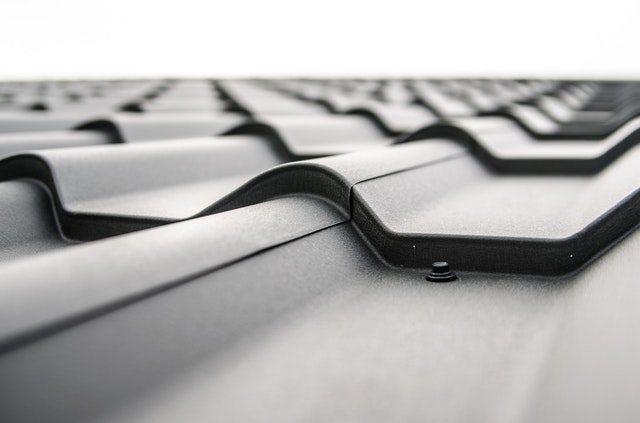Your roof is an important component of your home. It defends the rest of your house from rain, snow, wind, and heat, affects the energy efficiency of your home, and generally provides protection for you and your family. Choosing between the different types of Reno roofing material to use to replace your old roof can be a tough decision to make. There are so many to choose from, with various life expectancies and costs, how do you choose which one will best protect your home? Knowing more about the various types of roofing material, including underlayments, will help you decide which type of roofing will best fit you and your Reno home.

Asphalt or Composite Shingles
Asphalt shingles, also called composition shingles, are used by 80% of the housing market, making them the most popular type of roofing available. They are made with layers of fiberglass mat coated with asphalt, and then layered with granules made from ceramic or crushed rock material. This roofing material comes in a variety of styles, colors, weights, thickness, and textures making them extremely versatile. With the proper maintenance and care, asphalt shingles should be expected to last between 25 to 40 years. Along with their versatility and affordability, asphalt shingles are also durable. They protect well against harsh sunlight and weather and require little maintenance.
 Metal Roofing
Metal Roofing
Metal roofs are made from sheet metal panels of stainless and galvanized steel, copper, aluminum or an alloy mix of tin and steel. While metal roofs have a longevity of about 50-75 years, the cost can be as much as 3 times as expensive as asphalt roofing. However, metal roofs are extremely durable and keep out most moisture, protect against wind, and reflect light and heat which can improve energy efficiency. Metal roofs require little maintenance, but non-galvanized metal roofs do require painting every few years.
Wood Shake Roofing
Shake roofing is made from split logs that are typically cedar, but could also be made from redwoods. Shake roofing is favored for being attractive and appealing to look at as opposed to other types of roofing. However, shake roofing is not ideal for Reno roofing. It's not the most durable in a dry climate like Northern Nevada and are no longer permitted by building code in Reno or any other local building department. In some cases, shake can last 50-60 years and is recommended over metal or other options. One such example is where pine cones may fall onto a roof and dent the metal. Another drawback to shake roofing is the limited supply of skilled workers to install and maintain them.
Clay or Concrete Tiles
Of all the different types of roofing, clay and concrete tiles have the highest life expectancy. Clay and concrete tiles should last anywhere between 50 to 100 years. Like metal, the key to a good tile roof is using the highest quality underlayment available, since underlayment will always deteriorate before the tiles. A huge benefit to clay and concrete tile roofing is that they are fire resistant, which can help reduce insurance costs. Most cement tiles are made with additional water locks, or interlocking ribs on the edges that prevent water from getting through. Combined with a good underlayment, cement and clay tiles should last for a substantial amount of time. This type of roofing can be expensive, however, cement tiles are usually cheaper than clay tiles.
One drawback to tiles is the higher likelihood of leaks and limited access to labor to complete repairs. Tile systems are different than any other system in that tile systems are not built to be 100% watertight. The key with tiles is the underlayment. Water will get below the tiles.
The other drawback to tiles is a design flaw. Tile systems require the use of battons. After the underlayment is installed, 1"X2"x3ft wood battons are installed with 3" gap between each batton. The tiles are laid on the battons and nailed to the battons. When water gets under the tiles, it can pool on the battons and it flows sideways along the battons. This makes pinpointing a leak very challenging because water may get below the tiles in one place, find a weakness in the underlayment in another place and come through the sheetrock in another place. If and when leaks develop, large sections of the roof must be overhauled to make sure all leaking is resolved. This is the main reason homeowners tire of tile and switch to asphalt shingles.
Underlayment For Your Roof
Underlayment is an added layer of protection that is applied directly to the roof deck and lays under all other roofing material. It helps protect your roof deck from water damage and acts as an extra barrier of protection for your home. There are three different types of underlayment:
- Asphalt permeated paper
- Synthetic (plastic)
- Water and Ice Shield
Whether you have an asphalt, metal, tile, or shake roof, having a good underlayment can really help your roofing material last much longer. And in some areas that are above 5,300 feet, it may be required to have an extra underlayment added to the roof.
East Fork’s Number One Choice For Reno Roofing
At East Fork Roofing, we stick to the ever popular asphalt shingles to be used on all of our roof replacements, and for good reason. Asphalt shingles are affordable - in material and labor. They are installed easily which helps cut down on labor costs, and the material itself is very affordable compared to alternative roofing materials. Another benefit is their compatibility with most roofs, especially for homes with steep sloping roofs. Asphalt shingles have a class A fire rating and a great selection of styles, colors, and quality levels.
Connect with us today to get a free roof replacement quote in as little as 3 business days.
